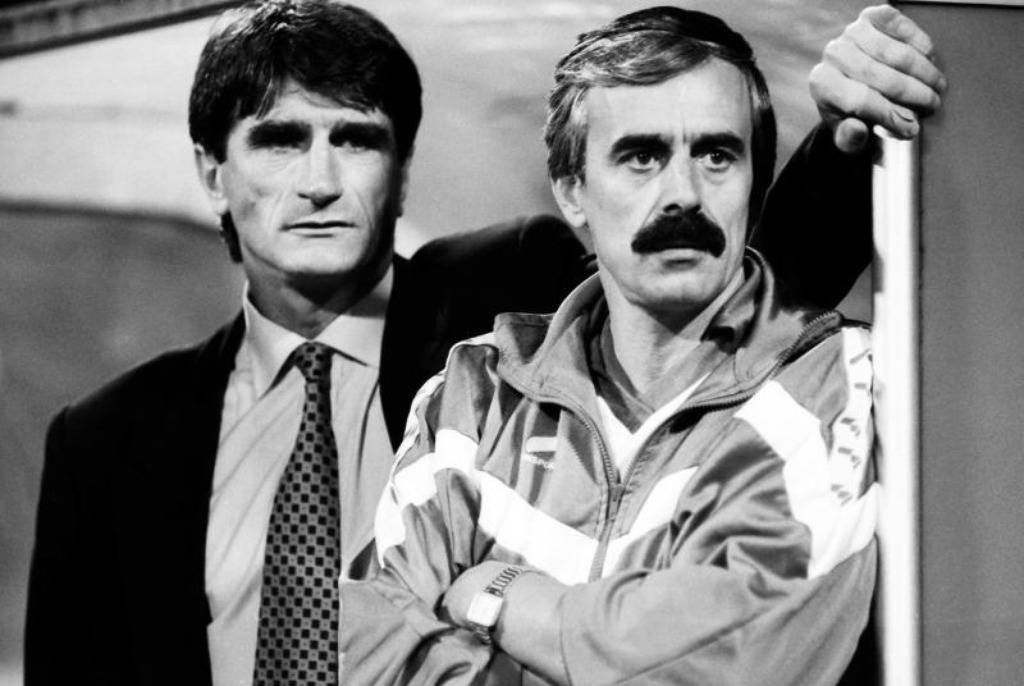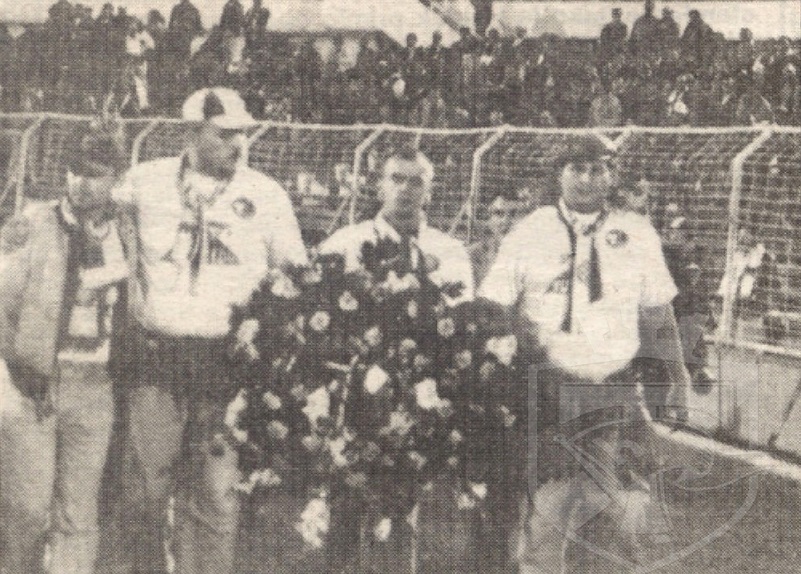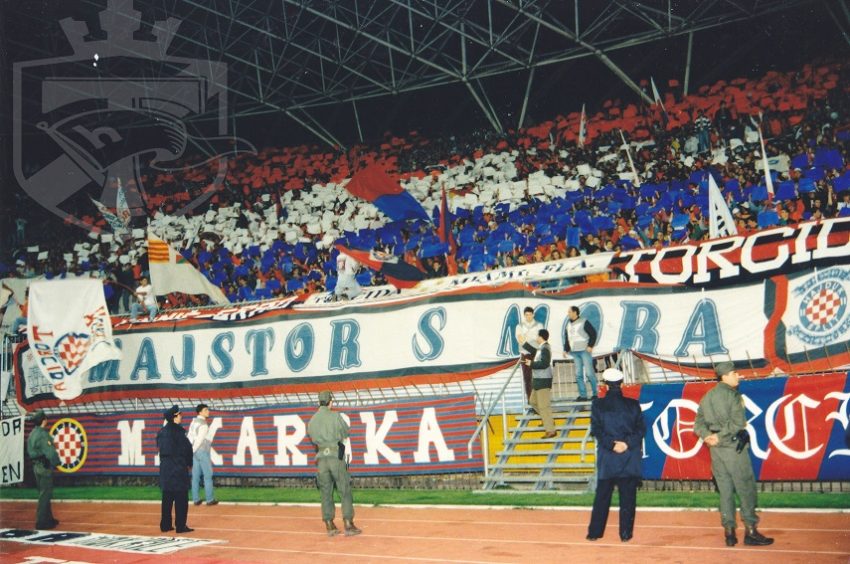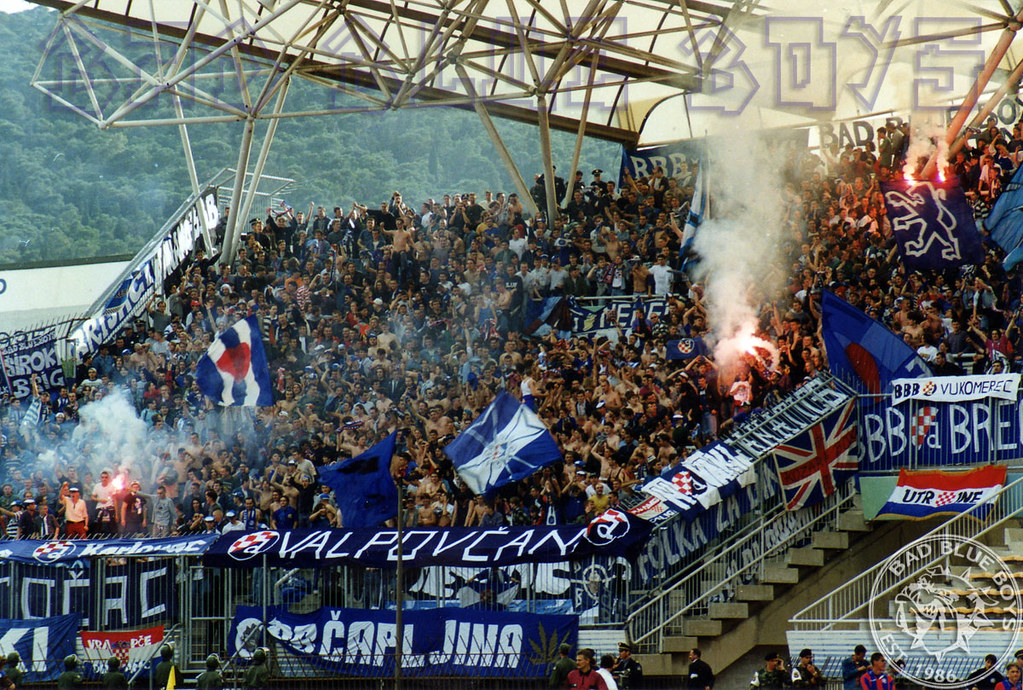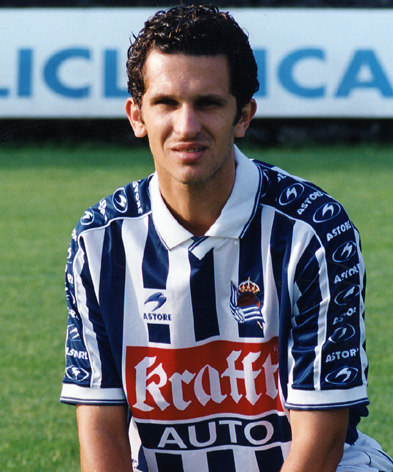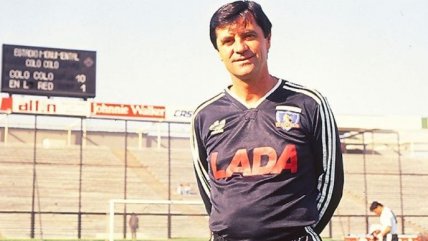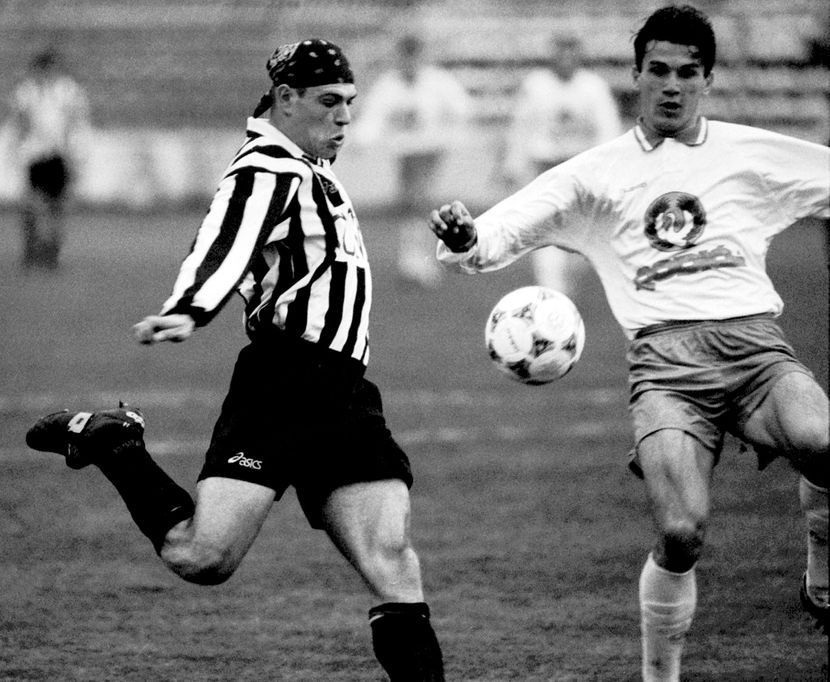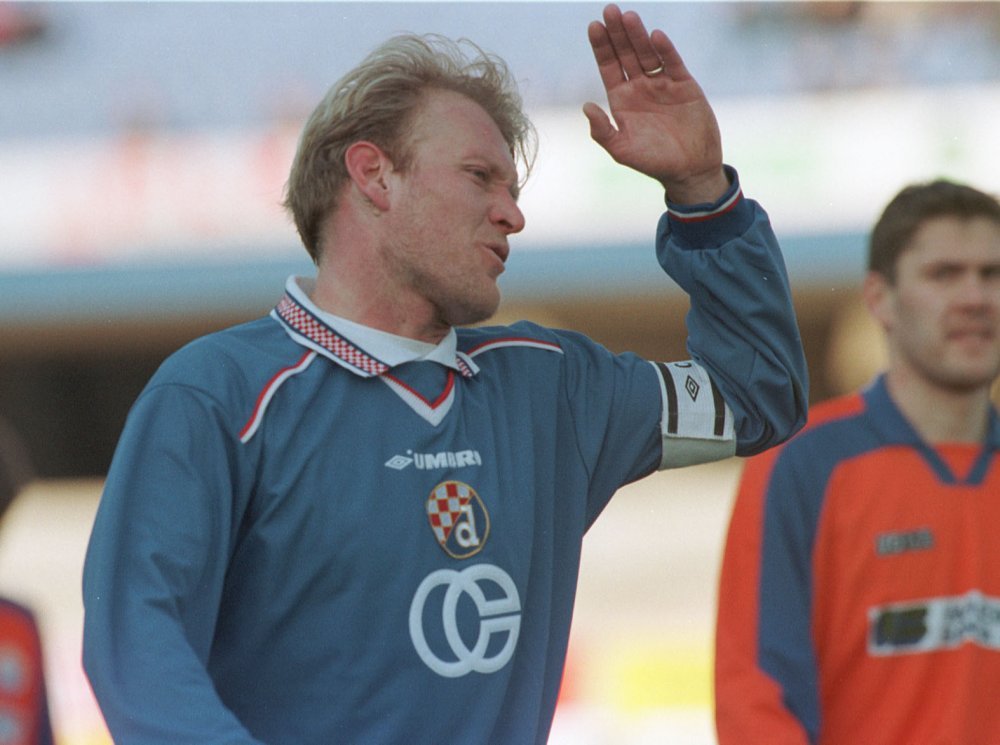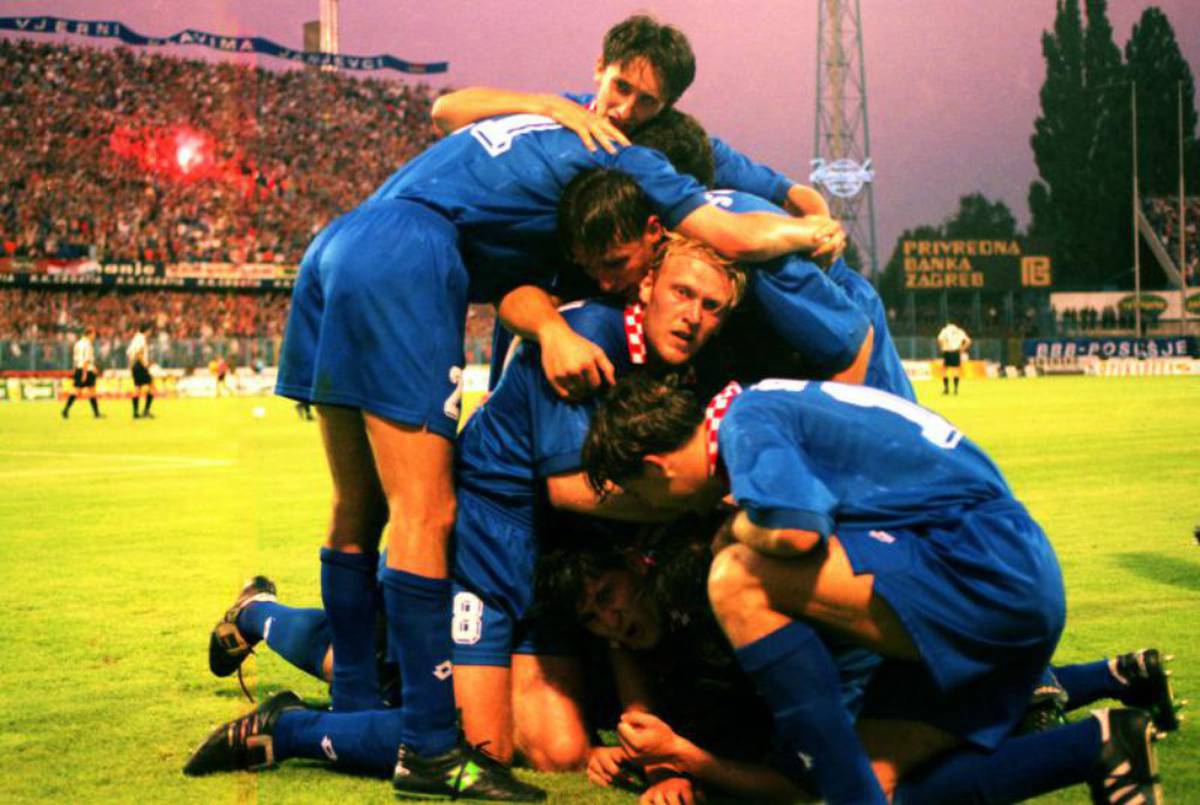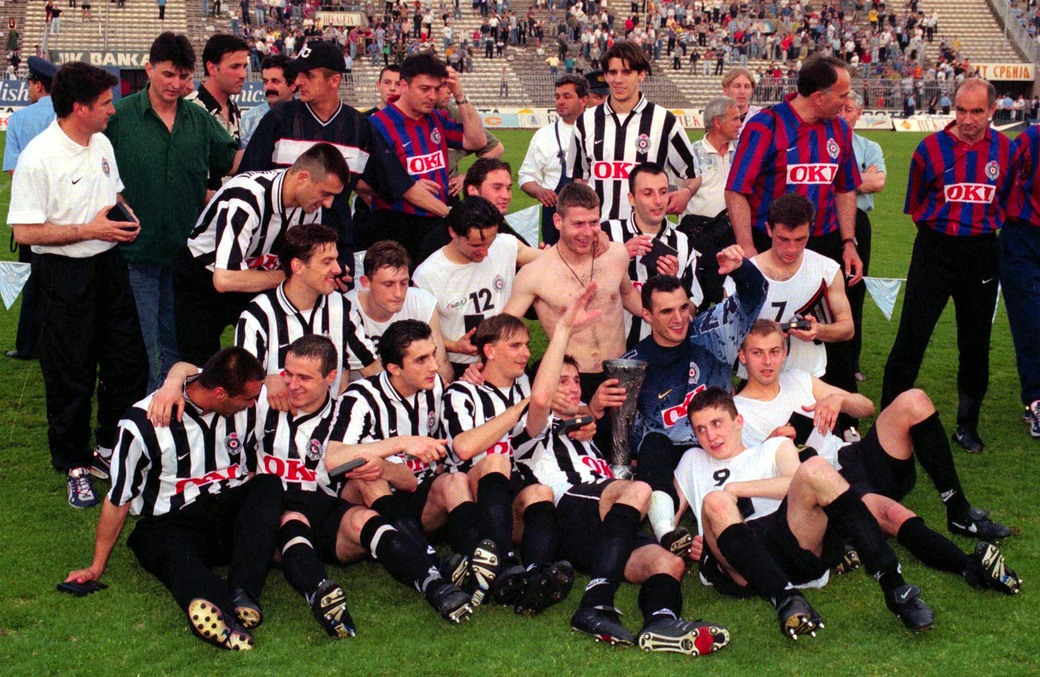Euro 96: Part 2
"People, is this really happening!?"
Following the preliminary group stages, which saw hosts Portugal; Yugoslavia; Germany and Czechoslovakia - the entire tournament began to truly feel like a carneval. The Portuguese fans, seeing how their team could likely enter the finals and win the whole thing swarmed the streets, where the party lasted for days on end. Along with them, the fans of the remaining teams had their own reasons to celebrate as well. Yugoslavia finally looked like a proper team, especially after demolishing Spain 3-1, while the Czechoslovaks were seeing their team reach the semis in a competition for the first time in 16 years. Of course, Germany was still the favourite for many, with the Mannschaft getting to meet with their old foes Yugoslavia.
Semi-finals
Prior to this meeting, Germany and Yugoslavia met 8 times, with the Germans having a significantly better record compared to their Slavic counterparts. It wasn't a rivalry, like with Yugoslavia and the former USSR or Italy, but the poor record that the Blues had against the whites certainly had some wishing that they could finally win for a third time against them. What followed next at the Estadio do Dragao, was nothing short of film-worthy. Already, on the 13th minute, Predrag Mijatović opened the scoring and sent the viewers at home in delirium, followed by Dragan Stojković establishing himself as the worthy captain of the Blues after scoring for 2-0.
(Dragan Stojković celebrating after scoring for 2-0 against Germany)
It looked like everything was coming up Yugoslavia - until a complete blunder by defender Siniša Mihajlović helped Germany diminish the deficite by one goal, followed by Bierhoff leveling the match only five minutes later. For almost the entire match, Yugoslavia held on and looked like it could finally beat their German rivals, but now the players looked tired. After the extended time, in which Germany attacked relentlessly, the game was now going into penalties. First three players all scored, and it looked like it would be the case of who blinks first. Then, Ziege and Slaven Bilić (Who substituted Mihajlović) both missed. Stefan Kuntz followed next, and he scored. Now, it was Aljoša Asanović's turn. He scored. With the five penalties taken, whoever scored next would win. Andreas Moller came next. Yugoslav goalkeeper Stevan Stojanović set himself in front of the goal, and he awaited the shot... And Stojanović defends!
Moller frowns as Sojanović celebrates, but nothing was over. Finally, after substituting Mijatović on the 95th minute, Davor Šuker stepped towards the white dot. He looks at the ball, then the goal. In a moment that could only be described as one of madness, Šuker scored, and dethroned the European champions. For the first time in over 20 years, Yugoslavia had qualified for the European final. Over at the JRT TV Broadcast, commentator Milojko Pantić was at a loss for words while the fans celebrated. 7 years ago, this man famously announced that "The heavens had opened" after Red Star Belgrade won the European Cup, now he asked the viewers one question - "People, is this really happening!?"

Over at Lisbon, the Jose Alvalade stadium was packed to the brim by fanatic Portuguese that flocked over to see their golden generation take on the Czechoslovaks. Following another glorious ceremony, in which the Portuguese could be heard chanting "The Euro is ours!" - the match that followed saw trench warfare by both sides, as both Portugal and the Czechs. In a first half of few opportunities, Portugal's
Ricardo Sá Pinto struck his side's only chance straight at Kouba, and the first half ended goalless. Eight minutes into the second half, Czechoslovakia took the lead with one of the most astonishing goals ever witnessed in a major tournament. Poborský received the ball from Němec before
dribbling past four Portugal players and then striking a high
lob over
Vítor Baía, the Spain goalkeeper, who was off his goalline. The velvets held their nerve, and they managed to defend just enough until the 90th minute passed, where the referee whistled the end of the match. Ricardo sa Pinto, Luis Figo, Vitor Baia and the rest all collapsed on the ground, watching as Czechoslovaks began to celebrate. The European Final would take place at the Stadio da Luz, in a Slavic Derby between Yugoslavia and Czechoslovakia.
Final
The final would finally take place in Estadio da Luz - Portugal's greatest stadium. As always, a ceremony took place before the match, with both sides emerging from the tunnel where they were greeted by the trophy. For Czechoslovakia, this was their chance to win their second European Cup, while Yugoslavia could win their first today.
In the 20th minute, Yugoslavia broke the deadlock with a goal from Zvonimir Boban. Boban made a great run through the Czechoslovakian defense and unleashed a powerful shot into the bottom corner of the net. Czechoslovakia responded well and started to apply pressure on the Yugoslavian defense. In the 38th minute, they were awarded a penalty after a foul by Slaven Bilić. Patrik Berger stepped up and calmly slotted the ball into the net to equalize.
The second half was a tense affair, with both teams struggling to find a breakthrough, and so the match ended in a draw after 90 minutes, where it went into extra time. The extra time was a boring affair, with both sides occasionally getting a chance to score a golden goal, but it was not meant to be, and soon enough, the tired players awaited the penalty shootout. As tough as the match was, it was Stefan Stojanović who was inspired that day, as he managed to defend some excellent shots by the Czechoslovaks. Now, with the penalties being taken, Stojanović once again performed miracles. After Drulak's goal, Stojanović defended every single attempt, while Yugoslavia filled the Czechoslovak net one after another. Finally, Davor Šuker sealed the deal, and the Yugoslav players could now celebrate and lift the trophy for the first time in their footballing history. The Yugoslav Golden Generation, 9 years after winning the 1987 Youth World Cup, finally achieved their first major piece of silverwear. Coming back home, the players had a tour that lasted from Ljubljana to Belgrade, where they were constatly awaited by the home crowd that cheered for them like mad. Stojković, Mijatović, Stojanović, Boban, Asanović and Šuker were all seen as the heroes of the team, but they couldn't have done it without a capable midfield, and a great goalkeeper.
And with that, we have finished off the 96 Euros. After the Domestic League, we shall wait and see how the 1998 World Cup will go. Cheers!